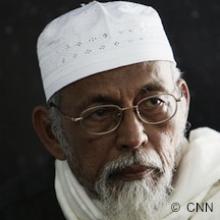
Abu Bakar Bashir
Founder and spiritual leader, alleged operational leader
Jemaah Islamiyah (JI) was a jihadist group in Southeast Asia that sought to establish a caliphate in the region through violent means. In June 2024, senior JI leaders announced the dissolution of the network, but some elements have remained active.
June 30, 2024: Sixteen JI leaders announce they are dissolving the extremist network in a video statement posted online. The leaders claim they are committed to Indonesian state and law. JI-affiliated boarding schools are to remain open, but all material taught would be in line with orthodox Islam. Among the leaders who sign on to the statement are emir Para Wijayanto and militant cleric and former leader Abu Rusdan—both in police detention at the time of the video. Kate Lamb and Ananda Teresia, “Southeast Asian militant group Jemaah Islamiyah to be disbanded, say its senior leaders,” Reuters, July 4, 2024, https://www.reuters.com/world/asia-pacific/southeast-asian-militant-group-jemaah-islamiyah-be-disbanded-say-its-senior-2024-07-04; Denny Armandhanu, “Terrorist group Jemaah Islamiyah's top leaders say it is dissolved. How should its ex-members, Indonesia authorities move forward?,” Channel News Asia (CAN), July 4, 2024, https://www.channelnewsasia.com/asia/indonesia-jemaah-islamiyah-dissolved-terrorism-splinter-4457446.
Jemaah Islamiyah (JI) was a jihadist group in Southeast Asia that sought to establish a caliphate in the region through violent means.
In June 2024, senior JI leaders announced the dissolution of the network, but some elements have remained active. Is This the End of Jemaah Islamiyah? (Updated),” Institute for Policy Analysis of Conflict, July 4, 2024, https://understandingconflict.org/en/publications/IPAC-report-96-is-this-the-end-of-Jemaah-Islamiyah. One of JI’s precursors was Darul Islam, an insurgent movement that gave rise to three separate revolts against the Indonesian government in the 1950s and 1960s. JI first raised its global profile after carrying out bombings in Bali in 2002 and 2005, killing 202 and 20 people (mostly foreign tourists), respectively.“Timeline: Attacks and plots blamed on Jemaah Islamiah in Asia,” Reuters, September 17, 2009, http://www.reuters.com/article/2009/09/17/us-indonesia-militants-timeline-sb-idUSTRE58G29X20090917; Paul Toohey, “Paradise for terrorists: 36 Bali bombers that killed 92 Australians are walking free,” Daily Telegraph (Sydney), May 4, 2014, http://www.dailytelegraph.com.au/news/nsw/paradise-for-terrorists-36-bali-bombers-that-killed-92-australians-are-walking-free/story-fni0cx12-1226904341271. Among other violent operations, JI was known for its links to the 1993 World Trade Center bombing as well as the 1995 failed “Bojinka” plot, an attempt to bomb 12 U.S. commercial airlines in the span of two days.National Commission on Terrorist Attacks upon the United States, Thomas H. Kean, and Lee Hamilton. 2004. The 9/11 Commission report: final report of the National Commission on Terrorist Attacks upon the United States. (Washington, D.C.): National Commission on Terrorist Attacks upon the United States, http://govinfo.library.unt.edu/911/report/911Report_Ch5.pdf. JI had links to al-Qaeda and the Abu Sayyaf Group (ASG), a Philippines-based terrorist organization.Yanina Goldburt, “An In-Depth Look at the Jemaah Islamiyah Network,” al Nakhlah (Fall 2004), http://fletcher.tufts.edu/Al-Nakhlah/Archives/~/media/Fletcher/Microsites/al%20Nakhlah/archives/pdfs/golburt.ashx. JI’s co-founder and former leader Abu Bakar Bashir pledged loyalty to ISIS in July 2014. However, some reports claimed that JI did not support ISIS and remained tied to al-Qaeda.“The Re-emergence of Jemaah Islamiyah,” Institute for Policy Analysis of Conflict, April 27, 2017, 1, http://file.understandingconflict.org/file/2017/04/IPAC_Report_36.pdf. Nonetheless, regional authorities, including Australian intelligence officials, were concerned that JI was loyal to ISIS and would increase terrorist activities in the region.Sarah Dean, David Martosko et al, “‘Truly sickening and utterly evil’: Tony Abbott warns of Aussie beheadings as it’s revealed Indonesian terrorists Jemaah Islamiyah has sided with ISIS killers who beheaded James Foley,” Daily Mail(London), August 20, 2014, http://www.dailymail.co.uk/news/article-2730480/PM-Tony-Abbott-warns-Australians-new-threats-Indonesian-terror-group-Jemaah-Islamiyah-calls-James-Foleys-beheading-truly-sickening.html.
In July 2008, Bashir established a new group called Jemaah Ansharut Tauhid (JAT), which has since been implicated in numerous terrorist attacks.“JEMMAH ANSHORUT TAUHID (JAT),” United Nations Security Council, July 17, 2018, https://www.un.org/securitycouncil/sanctions/1267/aq_sanctions_list/summaries/entity/jemmah-anshorut-tauhid. JAT’s establishment caused a rift within JI, with some members following Bashir and others remaining committed to the original group. JI and JAT disagreed over strategy and tactics, and eventually JI leaders demanded that anyone who joined JAT must leave JI.“Indonesia: The Dark Side of Jama’ah Ansharut Tauhid (JAT),” International Crisis Group, July 6, 2020, https://d2071andvip0wj.cloudfront.net/b107-indonesia-the-dark-side-of-jama-ah-ansharut-tauhid-jat.pdf. JI named Para Wijayanto as its leader in 2008. He had been involved in the terrorist group’s most notorious bombings dating as far back as 2000, according to Indonesian police.Amy Chew, “Indonesia’s arrest of Jemaah Islamiah leader involved in Bali bombings exposes active recruitment to create caliphate,” South China Morning Post, July 1, 2019, https://www.scmp.com/news/asia/southeast-asia/article/3016833/indonesias-arrest-ji-leader-para-wijayanto-exposes. On June 29, 2019, Indonesian counterterrorism police arrested JI leader Para Wijayanto on the outskirts of Jakarta.Amy Chew, “Indonesia’s arrest of Jemaah Islamiah leader involved in Bali bombings exposes active recruitment to create caliphate,” South China Morning Post, July 1, 2019, https://www.scmp.com/news/asia/southeast-asia/article/3016833/indonesias-arrest-ji-leader-para-wijayanto-exposes. On July 20, 2020, he was sentenced to seven years in prison on the charge of inciting others to commit an act of terrorism.“Indonesian police arrest suspected leader of group behind Bali bombing,” Guardian, July 1, 2019, https://www.theguardian.com/world/2019/jul/02/indonesian-police-arrest-suspected-leader-of-group-behind-bali-bombing. On July 20, 2020, he was sentenced to seven years in prison on the charge of inciting others to commit an act of terrorism.Asia News Network, “Indonesian court sentences Jemaah Islamiah leader to 7 years’ jail for inciting terrorism,” Inquirer.net, July 12, 2020, https://newsinfo.inquirer.net/1309831/indonesian-court-sentences-jemaah-islamiah-leader-to-7-years-jail-for-inciting-terrorism.
In the decade following JI’s splintering, the group remained a threat given its extensive network and alleged ties to both ISIS and al-Nusra Front (Hayat Tahrir al-Sham). Australian authorities in particular have expressed concern about JI foreign fighters returning to the region. This danger is exacerbated by Indonesia’s relatively lax immigration laws, which allow Indonesian citizens to travel in and out of conflict zones. Consequently, Indonesian jihadists who have fought in Iraq and Syria do not face the threat of criminal charges upon returning home.Michael Edwards, “Islamic State jihadists returning from Iraq sparks rejuvenated terror threat from Indonesia, experts warn,” Australian Broadcasting Corporation News, March 11, 2015, http://www.abc.net.au/news/2015-03-11/expert-warns-of-rejuvenated-terror-threat-in-indonesia-because-/6297700. At the height of ISIS’s control of swathes of territory in Iraq and Syria, numerous reports indicated a resurgent threat from JI.Daniel Flitton, “Special envoy calls as Australians join Syria fight,” Sydney Morning Herald, March 30, 2015, http://www.smh.com.au/federal-politics/political-news/special-envoy-call-as-australians-join-syria-fight-20140330-35s42.html; Michael Edwards, “Islamic State jihadists returning from Iraq sparks rejuvenated terror threat from Indonesia, experts warn,” Australian Broadcasting Corporation News, March 11, 2015, http://www.abc.net.au/news/2015-03-11/expert-warns-of-rejuvenated-terror-threat-in-indonesia-because-/6297700; Sarah Dean, David Martosko et al, “‘Truly sickening and utterly evil’: Tony Abbott warns of Aussie beheadings as it’s revealed Indonesian terrorists Jemaah Islamiyah has sided with ISIS killers who beheaded James Foley,” Daily Mail (London), August 20, 2014, http://www.dailymail.co.uk/news/article-2730480/PM-Tony-Abbott-warns-Australians-new-threats-Indonesian-terror-group-Jemaah-Islamiyah-calls-James-Foleys-beheading-truly-sickening.html. Indonesian authorities feared militant and radicalized Indonesian-citizen jihadists returning home after training with JI.Sri Lestari, “Does Islamic State ideology threaten Indonesia,” BBC News, August 11, 2014, http://www.bbc.com/news/world-asia-28700983. JI reportedly sought to rebuild its military wing from 2010 to at least 2017. JI supposedly kept its military activity underground in anticipation of a future confrontation, though the group had advised its recruits against any violent action.“The Re-emergence of Jemaah Islamiyah,” Institute for Policy Analysis of Conflict, April 27, 2017, 12, http://file.understandingconflict.org/file/2017/04/IPAC_Report_36.pdf.
JI members involved in the 2002 Bali attacks began completing their sentences and leaving prison in 2018. Their release led to a reinvigorated JI with an expanded target base that included not only government officials, security forces and western targets, but also religious and ethnic minorities—a tactic also employed by ISIS. Given JI’s new approach, Indonesian authorities again contended with rounding up and countering the terror group’s activities.“Jemaah Islamiyah,” Australian National Security, April 9, 2022, https://www.nationalsecurity.gov.au/what-australia-is-doing/terrorist-organisations/listed-terrorist-organisations/jemaah-islamiyah-(ji); Bilveer Singh, “The Revival of Al Qaeda’s Affiliate in Southeast Asia: the Jemaah Islamiyah,” Counter Terrorist Trends and Analyses, May 2017, https://www.jstor.org/stable/26351517#metadata_info_tab_contents; Wahyudi Soeriaatmadja, “Freeing of Indonesian radical cleric Abu Bakar Bashir will have repercussions, warn analyst,” Straits Times, January 20, 2019, https://www.straitstimes.com/asia/se-asia/freeing-of-indonesian-radical-cleric-abu-bakar-bashir-will-have-repercussions-warn. On December 10, 2020, Indonesia’s counterterrorism police arrested JI’s alleged military commander Aris Sumarsono, who had evaded arrest for more than 18 years.“Indonesian Police Arrest Militant Leader Associated with al-Qaida,” Voice of America, December 13, 2020, https://www.voanews.com/east-asia-pacific/indonesian-police-arrest-militant-leader-associated-al-qaida; Niniek Karmini, “Indonesia police: Top terror suspect mastermind of attacks,” Associated Press, December 14, 2020, https://apnews.com/article/afghanistan-indonesia-counterterrorism-jakarta-islamic-state-group-6bab71a7261501d065e2a8f9de46c207; Associated Press, “Indonesian Police Move Top Terror Suspect for Investigation,” Voice of America, December 16, 2020, https://www.voanews.com/east-asia-pacific/indonesian-police-move-top-terror-suspect-investigation. On January 19, 2022, Zulkarnaen was sentenced to 15 years in prison after he was found guilty of withholding information and sheltering an extremist figure.Agustinus Beo Da Costa and Stanley Widianto, “Indonesia jails militant from group blamed for Bali bombings,” Reuters, January 19, 2022, https://www.reuters.com/world/asia-pacific/indonesian-militant-linked-bali-bombings-given-15-year-jail-term-judge-2022-01-19; Niniek Karmini, “Indonesian militant gets 15 years in jail over Bali attacks,” Associated Press, January 19, 2022, https://abcnews.go.com/International/wireStory/indonesian-militant-15-years-jail-bali-attacks-82344879. In October 2022, a director at the National Counter-Terrorism Agency (BNPT) claimed that JI had been “quietly infiltrating public institutions and almost every aspect of civilian lives, recruiting members, raising funds and spreading its ideology in secret.” Indonesian police have continued to crackdown on charities linked to JI. Nivell Rayda, “‘Quietly infiltrating public institutions’: 20 years after Bali bombings, Jemaah Islamiyah threat remains,” Channel News Asia, October 11, 2022, https://www.channelnewsasia.com/asia/indonesia-bali-bombings-2002-jemaah-islamiyah-para-wijayanto-current-threat-2970101.
On June 30, 2024, a group of JI leaders announced that the network would be disbanded. In a video posted online, 16 of JI’s most senior figures signed onto a statement that claimed the group would disband and confirmed their commitment to the Indonesian state and law. Additionally, JI-affiliated boarding schools would remain open, but all material taught would be in line with orthodox Islam and “free from the attitude of extremism.”Heloise Vyas, “Extremist group Jemaah Islamiyah disbanded, as leaders cite renewed affiliation to Indonesian law,” Australian Broadcasting Corporation, July 4, 2024, https://www.abc.net.au/news/2024-07-04/militant-group-behind-2002-bali-bombings-disbanded/104060340. Among the leaders who signed on to the statement were emir Para Wijayanto and militant cleric and former leader Abu Rusdan—both in Indonesian police detention at the time of the announcement. According to the Jakarta-based think tank that confirmed the authenticity of the video, Institute for Policy Analysis of Conflict (IPAC), the leaders in the video were respected and credible enough within the organization to ensure widespread acceptance. However, analysts warned that the government should still be aware of potential splinter groups, of which JI has a history, particularly those committed to violence and against integration with the Republic of Indonesia.Kate Lamb and Ananda Teresia, “Southeast Asian militant group Jemaah Islamiyah to be disbanded, say its senior leaders,” Reuters, July 4, 2024, https://www.reuters.com/world/asia-pacific/southeast-asian-militant-group-jemaah-islamiyah-be-disbanded-say-its-senior-2024-07-04; Heloise Vyas, “Extremist group Jemaah Islamiyah disbanded, as leaders cite renewed affiliation to Indonesian law,” Australian Broadcasting Corporation, July 4, 2024, https://www.abc.net.au/news/2024-07-04/militant-group-behind-2002-bali-bombings-disbanded/104060340; Denny Armandhanu, “Terrorist group Jemaah Islamiyah’s top leaders say it is dissolved. How should its ex-members, Indonesia authorities move forward?,” Channel News Asia (CAN), July 4, 2024, https://www.channelnewsasia.com/asia/indonesia-jemaah-islamiyah-dissolved-terrorism-splinter-4457446. Analysts attributed the decision to disband to several factors, including police crackdowns and ensuing dialogue, wanting to control and sustain their schools, and potentially allowing members to be more involved in public life. Some analysts warned that the dissolution could be a tactic to avoid further law enforcement scrutiny and to ensure survival of the wider network. “Is This the End of Jemaah Islamiyah? (Updated),” Institute for Policy Analysis of Conflict, July 4, 2024, https://understandingconflict.org/en/publications/IPAC-report-96-is-this-the-end-of-Jemaah-Islamiyah; Aisyah Llewellyn, “Jemaah Islamiyah says it has disbanded, but retains influence through its schools,” Benar News, July 24, 2024, https://www.benarnews.org/english/news/indonesian/indonesia-jemaah-islamiyah-disbands-07242024054840.html.
JI aimed to establish an Islamic state (Daulah Islamiyah Nusantara) in Southeast Asia. Initially, the state would encompass Malaysia, Indonesia, and Mindanao (southern Philippines), and later absorb southern Thailand, Singapore, and Brunei.“The Jemaah Islamiyah Arrests and the Threat of Terrorism,” Ministry of Home Affairs, Republic of Singapore, January 2003, http://www.mha.gov.sg/Newsroom/speeches/Documents/English.pdf.
Its founding doctrine pursued three-phase strategy of violent jihad to establish a caliphate. The first phase of jihad targets local government. The second targets regional governments through a conflagration of attacks in countries such as Singapore and Philippines. The third phase is global jihad. This latter phase developed as a result of association with al-Qaeda, which seeks a global jihad, as opposed to JI’s initial localized jihad.“Jemaah Islamiyah Remains Active and Deadly,” The World’s Most Threatening Terrorist Networks and Criminal Gangs, eds. Barry R. Schneider, Jerrold M. Post et al (New York: Palgrave Macmillan, 2009), 187-189.
When Indonesia declared independence from the Netherlands, Abu Bakar Bashir and Abdullah Sungkar founded JI to overthrow the secular Indonesian state through political disruption and violence.Majlis Qiyadah Markaziyah Al Jamā‘ah Al Islāmiyyah, PUPJI: General Guidelines for the Struggle of Al Jamā‘ah Al Islāmiyah (n.p.: Majlis Qiyadah Markaziyah Al Jamā‘ah Al Islāmiyyah, 1996), accessed May 4, 2015,https://archive.org/stream/Pupji-GeneralGuidelinesForTheStruggleOfJamaahIslamiyah/Pupji-englishRevision4#page/n0/mode/2up/. One of JI’s precursors was Darul Islam, an insurgent movement that gave rise to three separate revolts against the Indonesian government in the 1950s and 1960s.Sidney Jones, “Darul Islam’s Ongoing Appeal,” International Crisis Group, August 18, 2010, http://www.crisisgroup.org/en/regions/asia/south-east-asia/indonesia/op-eds/jones-darul-islams-ongoing-appeal.aspx. Both Bashir and Sungkar were involved in Darul Islam, which was too ideologically fractured to move forward as an organization. However, during this time, they became involved in subversive activities against President Suharto’s government. Sungkar and Bashir later left Indonesia to join the jihad in Afghanistan and then Pakistan. It is in these two countries where they associated with Afghanis who espoused extremist ideology and foreign fighters who had also sought to join jihad. It is during this period that they developed the ideological and operational underpinnings of JI.David Gordon and Samuel Lindo, “Jemaah Islamiyah,” Center for Strategic & International Studies, November 2011, http://csis.org/files/publication/111101_Gordon_JemaahIslamiyah_WEB.pdf.
JI’s ideological and tactical manual is titled General Guidelines of the Struggle of Al Jemā‘ah Al Islāmiyah (PUPJI).“The Jemaah Islamiyah Arrests and the Threat of Terrorism,” Ministry of Home Affairs, Republic of Singapore, January 2003, http://www.mha.gov.sg/Newsroom/speeches/Documents/English.pdf. PUPJI states that one of the group’s main objectives is to develop the resources and capabilities of its members and the organization as a whole, including by teaching skills like bomb-making and acting as a “networking” organization.Mohamed Bin Ali, “Identifying Key Concerns of Jemaah Islamiyah: The Singapore Context,” Social Resilience in Singapore: Reflections from the London Bombings, ed. Norman Vasu (Singapore: Select Books, 2007), 68-80.
JI’s doctrine is based on five founding principles: iman (belief), hijrah (emigration), i’dad (preparation to struggle in the way of God), jihad (struggle in the way of Allah), and al wala wal bara (division of the world into friends and enemies).Mohamed Bin Ali, “Identifying Key Concerns of Jemaah Islamiyah: The Singapore Context,” Social Resilience in Singapore: Reflections from the London Bombings, ed. Norman Vasu (Singapore: Select Books, 2007), 68-80. JI’s ideology is influenced by al-Qaeda’s political theology, including works like Abu Musab al-Suri’s “Call to Worldwide Islamic Resistance,” Abu Bakr Naji’s “The Management of Savagery,” and Sayyed Imam Al-Sharif’s “Rationalizing Jihad in Egypt and the World.”“Jemaah Islamiyah,” Mapping Militant Organizations, Center for International Security and Cooperation at Stanford University, February 2012, http://web.stanford.edu/group/mappingmilitants/cgi-bin/groups/view/251.
Schisms within JI formed over disagreements on what the group’s goals should be. One camp wanted to slowly progress into a caliphate through radical proselytizing and education, building an Islamic community, and increasing adherence to Islamic law. The other group advocated the use of violent jihad. This more violent group was led by former JI military leader Riduan Isamuddin, a.k.a. Hambali, who encouraged a shift toward al-Qaeda–style tactics, resulting in a surge of attacks against Western assets in Indonesia in 2003.Majlis Qiyadah Markaziyah Al Jamā‘ah Al Islāmiyyah, PUPJI: General Guidelines for the Struggle of Al Jamā‘ah Al Islāmiyah (n.p.: Majlis Qiyadah Markaziyah Al Jamā‘ah Al Islāmiyyah, 1996), accessed May 4, 2015,https://archive.org/stream/Pupji-GeneralGuidelinesForTheStruggleOfJamaahIslamiyah/Pupji-englishRevision4#page/n0/mode/2up/. These attacks displayed JI’s tactical shift from targeting government and law enforcement to focusing on soft targets, such as tourist attractions, using car and suicide bombings.Majlis Qiyadah Markaziyah Al Jamā‘ah Al Islāmiyyah, PUPJI: General Guidelines for the Struggle of Al Jamā‘ah Al Islāmiyah (n.p.: Majlis Qiyadah Markaziyah Al Jamā‘ah Al Islāmiyyah, 1996), accessed May 4, 2015,https://archive.org/stream/Pupji-GeneralGuidelinesForTheStruggleOfJamaahIslamiyah/Pupji-englishRevision4#page/n0/mode/2up/.
JI’s ideological and tactical manual, General Guidelines of the Struggle of Al Jemā‘ah Al Islāmiyah (PUPJI), outlined the group’s structure. The manual divided JI’s areas of operation into regional units that would serve different administrative and operational purposes, each of which is called a mantiqi. Each mantiqi is in turn divided into smaller districts, each of which is called a wakalah.
JI was headed by an emir (commander or prince), who appointed and presided over councils for governance, theology, fatwa (Islamic jurisprudence), and discipline.“Jemaah Islamiyah Remains Active and Deadly,” The World’s Most Threatening Terrorist Networks and Criminal Gangs, eds. Barry R. Schneider, Jerrold M. Post et al (New York: Palgrave Macmillan, 2009), 193. The governing council included a central command that made policy and determined tactical and strategic operations.James C. “Chris” Whitmire, “Jemaah Islamiyah Remains Active and Deadly,” The World’s Most Threatening Terrorist Networks and Criminal Gangs, eds. Barry R. Schneider, Jerrold M. Post et al (New York: Palgrave Macmillan, 2009), 194.
Mantiqi I operated in Singapore and Malaysia and served as JI’s source of financing for operations, i.e. to terror attacks and training. Mantiqi II covered Indonesia, the main area in which JI carried out terrorist activities such as launching attacks on government and law enforcement targets. Mantiqi III included the Philippine island of Mindanao, the Malaysian state of Sabah on the island of Borneo, and the Indonesian island of Sulawesi, where cells were responsible for training. Mantiqi IV, which included Australia and the West Papua province of Indonesia, focused on fundraising.James C. “Chris” Whitmire, “Jemaah Islamiyah Remains Active and Deadly,” The World’s Most Threatening Terrorist Networks and Criminal Gangs, eds. Barry R. Schneider, Jerrold M. Post et al (New York: Palgrave Macmillan, 2009), 194.
In accordance with the PUPJI’s guidelines, from 2000 to 2001 JI was governed by a five-member Regional Advisory Council chaired by Riduan Isamuddin, a.k.a. Hambali. Before his arrest in 2003, Hambali supervised the mantiqi.“Bruce Vaughn, Emma Chanlett-Avery et al, “Terrorism in Southeast Asia,” Congressional Research Service, October 16, 2009, http://fas.org/sgp/crs/terror/RL34194.pdf.
Despite the hierarchy outlined in the PUPJI, JI became more decentralized in practice during the early 2000s.“Bruce Vaughn, Emma Chanlett-Avery et al, “Terrorism in Southeast Asia,” Congressional Research Service, October 16, 2009, http://fas.org/sgp/crs/terror/RL34194.pdf. Regional leaders developed a certain degree of autonomy and many cells were even completely isolated from one another.“Bruce Vaughn, Emma Chanlett-Avery et al, “Terrorism in Southeast Asia,” Congressional Research Service, October 16, 2009, http://fas.org/sgp/crs/terror/RL34194.pdf. This structure allowed JI to remain active even when top leaders were arrested or killed. Small bands were able to congregate in mountainous areas of Sulawesi, for example, where authorities feared they were trafficking weapons from neighboring countries.“Chapter 2. Country Reports: East Asia and Pacific Overview,” U.S. Department of State, April 30, 2014, www.state.gov/j/ct/rls/crt/2013/. According to an October 2009 Congressional Research Service report, JI’s core membership at its peak consisted of between 500 and several thousand persons, with countless more given radical educations in the JI-run pesantrens.“Bruce Vaughn, Emma Chanlett-Avery et al, “Terrorism in Southeast Asia,” Congressional Research Service, October 16, 2009, http://fas.org/sgp/crs/terror/RL34194.pdf.
Following the 2002 and 2005 Bali bombings, the Indonesian government cracked down on the group and a number of senior JI leaders and active members were either killed or arrested. The degradation of JI’s leadership led to a shift in the group’s structure.“Bruce Vaughn, Emma Chanlett-Avery et al, “Terrorism in Southeast Asia,” Congressional Research Service, October 16, 2009, http://fas.org/sgp/crs/terror/RL34194.pdf. During a meeting in 2008, remaining senior JI leaders and younger members—many whom received JI’s religious education—formed a new central command, markaziyah, which oversaw the group’s shift to religious outreach.“The Re-emergence of Jemaah Islamiyah,” Institute for Policy Analysis of Conflict, April 27, 2017, 3, http://file.understandingconflict.org/file/2017/04/IPAC_Report_36.pdf. At that same meeting, JI senior leaders appointed Para Wijayanto as the group’s new emir.“The Re-emergence of Jemaah Islamiyah,” Institute for Policy Analysis of Conflict, April 27, 2017, 3, http://file.understandingconflict.org/file/2017/04/IPAC_Report_36.pdf. In 2009, JI created the Majelis Dakwah Umat Islam (MDUI) to serve as its public-facing organization, with the objective of spreading JI’s ideology and encouraging Muslims to enforce Islamic law.“The Re-emergence of Jemaah Islamiyah,” Institute for Policy Analysis of Conflict, April 27, 2017, 4, http://file.understandingconflict.org/file/2017/04/IPAC_Report_36.pdf. This recent iteration of JI leadership also sought to rebuild the group’s separate military wing in 2010, which had lapsed into inactivity following the Indonesian police crackdown of the early 2000s.“The Re-emergence of Jemaah Islamiyah,” Institute for Policy Analysis of Conflict, April 27, 2017, 5, http://file.understandingconflict.org/file/2017/04/IPAC_Report_36.pdf. JI’s MDUI would operate openly and focus on religious education, while the military wing would remain clandestine.“The Re-emergence of Jemaah Islamiyah,” Institute for Policy Analysis of Conflict, April 27, 2017, 5, http://file.understandingconflict.org/file/2017/04/IPAC_Report_36.pdf. The military wing was reportedly based on the original PUPJI structure.“The Re-emergence of Jemaah Islamiyah,” Institute for Policy Analysis of Conflict, April 27, 2017, 5, http://file.understandingconflict.org/file/2017/04/IPAC_Report_36.pdf.
Indonesian police believed that a faction of JI reconstituted into a “Neo-JI”—a term coined by law enforcement to refer to a younger generation of JI militants. In 2019, former Indonesian police spokesperson Dedi Prasetyo said that the faction continued to recruit members in order to achieve its aim of establishing a caliphate in the country.Asia News Network, “Indonesian court sentences Jemaah Islamiah leader to 7 years’ jail for inciting terrorism,” Inquirer.net, July 12, 2020, https://newsinfo.inquirer.net/1309831/indonesian-court-sentences-jemaah-islamiah-leader-to-7-years-jail-for-inciting-terrorism. Neo-JI had also been linked to al-Qaeda in Syria.Mona Kanwal Sheikh, “Islamic State and al-Qaeda in a thriving Indonesian democracy,” Global Jihad in South East Asia: Examining the Expansion of the Islamic State and al-Qaeda, ed. Mona Kanwal Sheikh (Copenhagen: Danish Institute for International Studies, 2019), 39-57, https://www.diis.dk/en/research/global-jihad-in-south-east-asia.
At the time of JI leader Para Wijayanto’s arrest in 2019, the organization had approximately 6,000 members, according to the Indonesia-based Institute for Policy Analysis of Conflict.“The Impact of the Taliban Victory on Indonesia’s Jemaah Islamiyah,” Institute for Policy Analysis of Conflict, September 7, 2021, 6, http://cdn.understandingconflict.org/file/2021/09/IPAC_Report_73_JI.pdf. Other reports estimated that JI as a whole was comprised of between 2,000 to 3,000 members. The group had an unidentified number of supporters and sympathizers in the Muslim majority country.Mona Kanwal Sheikh, “Islamic State and al-Qaeda in a thriving Indonesian democracy,” Global Jihad in South East Asia: Examining the Expansion of the Islamic State and al-Qaeda, ed. Mona Kanwal Sheikh (Copenhagen: Danish Institute for International Studies, 2019), 39-57, https://www.diis.dk/en/research/global-jihad-in-south-east-asia.
JI fundraised through membership donations and criminal and business activities, according to the U.S. State Department.“Chapter 2. Country Reports: East Asia and Pacific Overview,” U.S. Department of State, April 30, 2014, www.state.gov/j/ct/rls/crt/2013/. The group received financial, ideological, and logistical support from other groups in its network, such as al-Qaeda’s core and other Middle Eastern contacts.Yanina Goldburt, “An In-Depth Look at the Jemaah Islamiyah Network,” al Nakhlah (Fall 2004), http://fletcher.tufts.edu/Al-Nakhlah/Archives/~/media/Fletcher/Microsites/al%20Nakhlah/archives/pdfs/golburt.ashx. While some analysts believe al-Qaeda was JI’s main source of revenue, others note the group’s ability to exploit charities and divert resources away for terror operations.Yanina Goldburt, “An In-Depth Look at the Jemaah Islamiyah Network,” al Nakhlah (Fall 2004), http://fletcher.tufts.edu/Al-Nakhlah/Archives/~/media/Fletcher/Microsites/al%20Nakhlah/archives/pdfs/golburt.ashx.
Additional sources of money for JI included cash remittances from individuals of the Indonesian diaspora, profits from hawala (informal money-lender networks), weapons smuggling, and extortion.Yanina Goldburt, “An In-Depth Look at the Jemaah Islamiyah Network,” al Nakhlah (Fall 2004), http://fletcher.tufts.edu/Al-Nakhlah/Archives/~/media/Fletcher/Microsites/al%20Nakhlah/archives/pdfs/golburt.ashx. It is unclear how much money the group had in its coffers and how these funds were distributed to operatives. After around 2009, JI’s attacks lacked the sophistication of previous JI attacks, leading analysts to believe that the group suffered from a lack of funding.“Jemaah Islamiyah (a.k.a. Jemaah Islamiah),” Council on Foreign Relations, June 19, 2009, http://www.cfr.org/indonesia/jemaah-islamiyah-k-jemaah-islamiah/p8948.
The group also used charitable organizations as fronts for the organization. On September 4, 2014, the U.S. Department of the Treasury designated the Hilal Ahmar Society Indonesia (HASI) for sending multiple groups of JI terrorist fighters to Syria for providing funds, military training, and recruits to JI. HASI, ostensibly JI’s humanitarian wing, was active as a non-governmental organization in Indonesia since 2011.“Treasury Designates Twelve Foreign Terrorist Fighter Facilitators,” U.S. Department of the Treasury, September 24, 2014, http://www.treasury.gov/press-center/press-releases/Pages/jl2651.aspx.
During their investigation into alleged JI leader Para Wijayanto, the Indonesian police discovered a new development in the terrorist group’s financing effort: JI was profiting from two palm oil farms in Sumatra and Kalimantan.Sylvia Laksmi, “How do terrorists fund their activities? Some do it legally,” Jakarta Post, July 15, 2019, https://www.thejakartapost.com/academia/2019/07/15/how-do-terrorists-fund-their-activities-some-do-it-legally.html. The group used income from the palm oil businesses to fund their activities and pay salaries to leaders and other members in the network, said a police spokesperson.Adi Renaldi, “Terrorist Group Behind Bali Bombings Use Palm Oil Plantations to Fund Terrorist Activity,” Vice, July 11, 2019, https://www.vice.com/en_in/article/vb98k3/jemaah-islamiyah-suspected-of-running-a-palm-oil-plantation-to-fund-terrorist-activity.
Following the arrest of two dozen suspected JI members in late 2020, Indonesian police discovered a JI funding scheme that involved more than 20,000 cash donation boxes across Indonesia. The boxes, typically used by charities in the country, were planted outside of minimarkets, gas stations, restaurants, and other businesses. The boxes were registered to the Abdurrahman bin Auf (ABA) Charity Foundation, an apparent front organization that diverted funds collected in the boxes to JI. Police said the money was used to purchase weapons, explosives, and to finance training for JI members in Syria.Aisyah Llewellyn, “Indonesians unknowingly fund hardline group behind Bali bombings,” Al Jazeera, January 7, 2021, https://www.aljazeera.com/news/2021/1/7/indonesian-alms-boxes-ji.
JI relied largely on social outreach efforts to recruit new followers.Zachary Abuza, “Jemaah Islamiyah Adopts the Hezbollah Model,” Middle East Quarterly (Winter 2009), http://www.meforum.org/2044/jemaah-islamiyah-adopts-the-hezbollah-model. For example, JI provided relief to victims of the 2004 Indian Ocean tsunami in order to attract support for its cause.Jeff Lewis and Belinda Lewis, Bali’s Silent Crisis: Desire, Tragedy, and Transition, (Lanham: Lexington Books, 2009), https://books.google.com/books?id=l9OW7W-HgZUC&lpg=PR1&pg=PR4#v=onepage&q&f=false. While some JI recruits came from poorer backgrounds, many recruits were well-educated and attracted to “charismatic” preachers.Yanina Goldburt, “An In-Depth Look at the Jemaah Islamiyah Network,” al Nakhlah (Fall 2004), http://fletcher.tufts.edu/Al-Nakhlah/Archives/~/media/Fletcher/Microsites/al%20Nakhlah/archives/pdfs/golburt.ashx. In its latter years, JI had attracted recruits from other Islamist groups in the region, including Indonesia-based Darul Islam, JI’s ideological predecessor.“JI recruiting from new sources,” Korea Herald (Seoul), April 6, 2010, http://www.koreaherald.com/view.php?ud=20050711000009.
JI also recruited members through its Islamic schools and the family networks created by marriages in the community. The Al Mukmin school in Ngruki, Indonesia, was part of a network of pesantren for children of JI members.Yanina Goldburt, “An In-Depth Look at the Jemaah Islamiyah Network,” al Nakhlah (Fall 2004), http://fletcher.tufts.edu/Al-Nakhlah/Archives/~/media/Fletcher/Microsites/al%20Nakhlah/archives/pdfs/golburt.ashx. The schools were meant to serve JI by perpetually replenishing the group’s ranks. According to Sidney Jones of the Jakarta-based Institute for Policy Analysis of Conflict, only some 40 pesantren in the country were associated with terrorist activities, while others focus on creating “upstanding citizens.”Pallavi Aiyar, “In Indonesia, Madrassas of Moderation,” New York Times, February 10, 2015, http://www.nytimes.com/2015/02/11/opinion/in-indonesia-madrassas-of-moderation.html.
According to an April 2017 report on JI, the group increased efforts to recruit on university campuses. In 2014, Indonesian police obtained a PowerPoint presentation from JI’s education wing showing that JI had reached 1,988 male university students and 862 females during 2013, though they did not necessarily become members.“The Re-emergence of Jemaah Islamiyah,” Institute for Policy Analysis of Conflict, April 27, 2017, 9, http://file.understandingconflict.org/file/2017/04/IPAC_Report_36.pdf.
Between late February and early March 2021, Indonesian counterterrorism police arrested 22 suspected JI members across East Java province. Among the suspects was known militant Usman bin Sef, also known as Fahim, who had led a JI cell that had recruited at least 50 new members in the province in the past five years, according to police.Andi Jatmiko and Niniek Karmini, “Indonesian police say new JI cell was recruiting, training,” Associated Press, March 18, 2021, https://apnews.com/article/java-counterterrorism-jakarta-indonesia-arrests-6d0710ad59a920c595f94a3bae056043.
During the 1980s, members of JI’s predecessor, Darul Islam, trained in Afghanistan.Carlos H. Conde, “Jemaah Islamiyah’s tie to rebels grows: Manila peace talks face a rising threat,” New York Times, July 14, 2004, http://www.nytimes.com/2004/07/14/news/14iht-rebels.html. Beginning in the 1990s, JI training continued in Pakistan with assistance from the Pakistani militant group Lashkar-e-Taiba (LeT).David Gordon and Samuel Lindo, “Jemaah Islamiyah,” Center for Strategic & International Studies, November 2011, http://csis.org/files/publication/111101_Gordon_JemaahIslamiyah_WEB.pdf. The Moro Islamic Liberation Front (MILF) helped with JI’s training in the Philippines using training camps in the southern island of Mindanao.The National Counterterrorism Center, “Jemaah Islamiyah (JI),” accessed March 31, 2015, http://www.nctc.gov/site/groups/ji.html. Training camp activities included indoctrination studies and weapons and explosives training.Yanina Goldburt, “An In-Depth Look at the Jemaah Islamiyah Network,” al Nakhlah (Fall 2004), http://fletcher.tufts.edu/Al-Nakhlah/Archives/~/media/Fletcher/Microsites/al%20Nakhlah/archives/pdfs/golburt.ashx.
In January 2021, Indonesian police uncovered a compilation video allegedly showing an elite force of JI members engaged in weapons and physical training as well as kidnapping simulations between 2013 and 2018. The video was found on the laptop of a recently-arrested JI member. According to Indonesian police, the members were between 19 and 23 years old and received seven months of training before being sent to fight in Syria. The terrorist training camps were run in 12 locations in Indonesia and involved seven different groups comprised of up to 15 recruits. A former JI trainer claimed that the trainings cost approximately $6,000 per month. Additionally, JI reportedly spent at least $28,000 to send 120 fighters to train in Syria.Cindy Wockner and Komang Erviani, “Video of terrorist training camp unearthed,” Australian Associated Press, January 2, 2021, https://au.news.yahoo.com/video-terrorist-training-camp-unearthed-203007241--spt.html.
In March 2021, Indonesian counterterrorism police announced that they had arrested 22 members of a JI cell that had been conducting military-style training in East Java’s Malang district. The JI fighters were allegedly plotting to attack police. Among the suspects was Fahim, who is suspected of leading the cell that recruited and trained new members in East Java. During the counterterrorism raids, Indonesian authorities also uncovered a bunker for weapons and bombmaking, as well as jihadist books.Andi Jatmiko and Niniek Karmini, “Indonesian police say new JI cell was recruiting, training,” Associated Press, March 18, 2021, https://apnews.com/article/java-counterterrorism-jakarta-indonesia-arrests-6d0710ad59a920c595f94a3bae056043.
|
|

Founder and spiritual leader, alleged operational leader

Founder and former spiritual leader, deceased

Top recruiter, one of the masterminds behind the August 2003 attack on Marriott Hotel and September 2004 car bomb outside Australian Embassy in Jakarta, reportedly killed by Indonesian police in Java on September 17, 2009
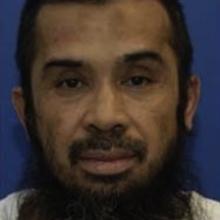
Operational leader, head of regional shura, suspected al-Qaeda operations director for East Asia, now in extrajudicial detention at Guantanamo Bay
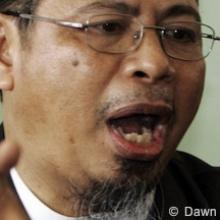
Primary recruiter and second-in-command, arrested in Malaysia

Bomb maker and member of central command, confirmed dead February 5, 2015

JI operative and fundraiser

JI leader and fundraiser

Head of JI’s foreign affairs division and head of JI operations in Syria
Emir
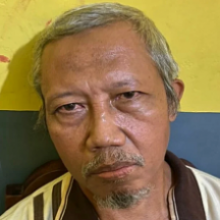
JI military commander

JI leader in East Java Province
JI has plotted and executed a range of terrorist operations, including the Bali bombings in 2002 and 2005 as well as a score of bombings in Indonesia and the Philippines. The group’s former leader, Riduan Isamuddin, a.k.a. Hambali, was also responsible for laundering the money to fund al-Qaeda terrorist plots, including the 1993 World Trade Center bombing, and the failed 1995 Bojinka plot, an attempt to bomb 12 U.S. commercial airlines in the span of two days.Aurel Croissant and Daniel Barlow, “Government Responses in Southeast Asia,” Terrorism Financing and State Responses: A Comparative Perspective (Stanford: Stanford UP), p. 212, http://www.sup.org/books/title/?id=10507. Crackdowns on JI have forced the group to operate underground and alongside local terror groups. In July 2014, founder and former JI leader Abu Bakar Bashir pledged allegiance to violent terrorist group ISIS while in prison.Rendi A. Witular, “Abu Bakar Ba’asyir calls on followers to support ISIL,” Jakarta Post, July 14, 2014, http://www.thejakartapost.com/news/2014/07/14/abu-bakar-ba-asyir-calls-followers-support-isil.html.


October 27, 2002: Australia designated Jemaah Islamiyah as a terrorist organization on October 27, 2002.“Jemaah Islamiyah (JI),” Australian National Security, October 19, 2014, http://www.nationalsecurity.gov.au/Listedterroristorganisations/Pages/JemaahIslamiyahJI.aspx.

April 23, 2008: Indonesia designated Jemaah Islamiyah as an illegal organization on April 23, 2008.Mark Forbes, “Jakarta backs court’s decision to outlaw Jemaah Islamiah,” Sydney Morning Herald, April 23, 2008, http://www.smh.com.au/news/world/jakarta-backs-courts-decision-to-outlaw-jemaah-islamiah/2008/04/22/1208742940633.html.

November 2002: The United Kingdom designated Jemaah Islamiyah as a terrorist organization in November 2002.Proscribed Terrorist Organisations,” GOV.UK, August 20, 2014, https://www.gov.uk/government/uploads/system/uploads/attachment_data/file/354891/ProscribedOrganisationsAug14.pdf.

October 25, 2002: The United Nations Security Council Committee listed Jemaah Islamiyah as a terrorist organization linked to al-Qaeda or the Taliban on October 25, 2002.“The List established and maintained by the 1267/1989 Committee,” United Nations, last modified March 26, 2015, http://www.un.org/sc/committees/1267/1267.pdf.
The United Nations Al-Qaida Sanctions Committee listed Hilal Ahmar Society Indonesia (HASI) as a terrorist organization for supporting acts or activities of Jemaah Islamiyah on March 13, 2015.“QDe.147HILAL AHMAR SOCIETY INDONESIA (HASI),” United Nations, March 13, 2015, https://www.un.org/sc/suborg/en/sanctions/1267/aq_sanctions_list/summaries/entity/hilal-ahmar-society-indonesia-%28hasi%29.
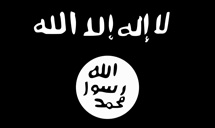
ASG, an extremist Islamic insurgent group in the Philippines, has provided a special training camp for JI militants within its training camp in Southern Mindanao. JI members in turn have provided training in subjects such as bomb-making and weapons-handling. JI also served as a direct connection between ASG and al-Qaeda core. A key JI leader, Zulkifli Abdhir, a.k.a Marwan, was long harbored in the ASG-controlled region in the Philippines and continued to operate there.“Marwan alive has serious implications: Trillanes,” ABS-CBN News, August 7, 2014, http://www.abs-cbnnews.com/nation/08/07/14/marwan-alive-has-serious-implications-trillanes. Marwan was confirmed dead after a 12-hour bloody gunfight with Philippine police’s elite Special Action Force (SAF), during which 44 members of SAF were killed.Tim Hume, “Man killed in Philippines raid was wanted terror suspect Marwan, DNA indicates,” CNN, February 5, 2015, http://www.cnn.com/2015/02/05/world/philippines-marwan-dna-positive/. However, a Philippine intelligence chief has asserted that 10 to 12 JI members continue to reside among ASG in the southern Philippines.“Marwan alive has serious implications: Trillanes,” ABS-CBN News, August 7, 2014, http://www.abs-cbnnews.com/nation/08/07/14/marwan-alive-has-serious-implications-trillanes.

JI’s experiences with al-Qaeda jihadists in Afghanistan significantly influenced its doctrine and also served to solidify a connection between JI and al-Qaeda core.David Gordon and Samuel Lindo, “Jemaah Islamiyah,” Center for Strategic & International Studies, November 2011, http://csis.org/files/publication/111101_Gordon_JemaahIslamiyah_WEB.pdf. Al-Qaeda core had initially provided a bulk of revenue to JI also, though JI members are able to raise their own funds. Some analysts believe the group is still financially connected.Yanina Goldburt, “An In-Depth Look at the Jemaah Islamiyah Network,” al Nakhlah (Fall 2004), http://fletcher.tufts.edu/Al-Nakhlah/Archives/~/media/Fletcher/Microsites/al%20Nakhlah/archives/pdfs/golburt.ashx. Between 2014 and 2016, some members of JI associated with al-Qaeda’s former formal affiliate in Syria, al-Nusra Front, and joined the group there.Julie Chernov Hwang and Noor Huda Ismail, “There and Back Again: Indonesian Fighters in Syria,” Middle East Institute, January 27, 2015, http://www.mei.edu/content/map/there-and-back-again-indonesian-fighters-syria.

In July 2014, former JI leader Abu Bakar Bashir pledged allegiance to Abu Bakr al-Baghdadi from an Indonesian prison.Perdani, Yuliasri and Ina Parlina. “Govt to tighten prison security following Ba’asyir’s ‘baiat’,” Jakarta Post, August 5, 2014, http://www.thejakartapost.com/news/2014/08/05/govt-tighten-prison-security-following-ba-asyir-s-baiat.html. Though some recent reports claim that JI leadership is opposed to ISIS, Southeast Asian and Australian government officials fear a possible JI-ISIS link threatens the region.Stephanie Balogh, “Jemaah Islamiah alignment to Islamic State a potential threat: Abbott,” Australian (Surry Hills), August 21, 2014, http://www.theaustralian.com.au/in-depth/middle-east-in-turmoil/jemaah-islamiah-alignment-to-islamic-state-a-potential-threat-abbott/story-fn7ycml4-1227031712670; “The Re-emergence of Jemaah Islamiyah,” Institute for Policy Analysis of Conflict, April 27, 2017, 1, http://file.understandingconflict.org/file/2017/04/IPAC_Report_36.pdf. Australian PM Abbot concurs on this assessment, stating, “Jemaah Islamiyah have pledged their allegiance to the ISIL movement and that does indicate the potential for increased terror activity in our region.”Sarah Dean, David Martosko et al, “‘Truly sickening and utterly evil’: Tony Abbott warns of Aussie beheadings as it’s revealed Indonesian terrorists Jemaah Islamiyah has sided with ISIS killers who beheaded James Foley,” Daily Mail (London), August 20, 2014, http://www.dailymail.co.uk/news/article-2730480/PM-Tony-Abbott-warns-Australians-new-threats-Indonesian-terror-group-Jemaah-Islamiyah-calls-James-Foleys-beheading-truly-sickening.html. Some analysts believe that the Indonesian jihadists see ISIS as an “embryo of an Islamic caliphate.”“Indonesians joining rebels in Syria, Iraq,” Manila Times, June 20, 2012, http://www.manilatimes.net/indonesians-joining-rebels-in-syria-iraq/105529/.

By one account from a JI member himself, there were at least 150 Indonesian fighters who have joined either ISIS or al-Nusra Front to fight on the frontlines in Syria.Julie Chernov Hwang and Noor Huda Ismail, “There and Back Again: Indonesian Fighters in Syria,” Middle East Institute, January 27, 2015, http://www.mei.edu/content/map/there-and-back-again-indonesian-fighters-syria.

JAT seeks to establish an extreme interpretation of Islamic law with the ultimate goal of creating an Indonesian caliphate. There is likely an overlap in membership with JI since JAT founder, Abu Bakar Bashir, is a key leader of JI.“Jemaah Anshorut Tauhid (JAT),” 2014 Counterterrorism Calendar, accessed October 19, 2014, http://www.nctc.gov/site/groups/jat.html. According to the Institute for Policy Analysis of Conflict, however, Bashir’s establishment of JAT led to his break from JI.“The Re-emergence of Jemaah Islamiyah,” Institute for Policy Analysis of Conflict, April 27, 2017, 3, http://file.understandingconflict.org/file/2017/04/IPAC_Report_36.pdf.
KMM is a Malaysian extremist group that seeks to overthrow the Malaysian government and establish an Islamic state. The group also aims to include Indonesia and southern Philippines to create a pan-Southeast Asian Islamic state. Many of KMM’s members, much like the Jemaah Islamiyah, (JI) trained as jihadists in Afghanistan with some members fighting in the Soviet-Afghan war.“Kumpulan Mujahidin Malaysia (KMM), Malaysian Mujahideen Movement,” Global Security.org, accessed April 17, 2015, http://www.globalsecurity.org/military/world/para/kmm.htm. As mujahidin, KMM members established relationships with members of other Islamic extremist groups in the region.“Kumpulan Mujahidin Malaysia (KMM), Malaysian Mujahideen Movement,” Global Security.org, accessed April 17, 2015, http://www.globalsecurity.org/military/world/para/kmm.htm. Some sources claim that Abu Bakar Bashir, JI’s founder, is also a founder of the KMM,“Jemaah Islamiyah,” Mapping Militant Organizations, Center for International Security and Cooperation at Stanford University, February 2012, http://web.stanford.edu/group/mappingmilitants/cgi-bin/groups/view/251. while others claim that he advises and assists KMM leaders.“Terrorist Organization Profile: Kumpulan Mujahidin Malaysia (KMM),” National Consortium for the Study of Terrorism and Responses to Terrorism, accessed April 17, 2015, http://www.start.umd.edu/tops/terrorist_organization_profile.asp?id=4401.



Get the latest news on extremism and counter-extremism delivered to your inbox.